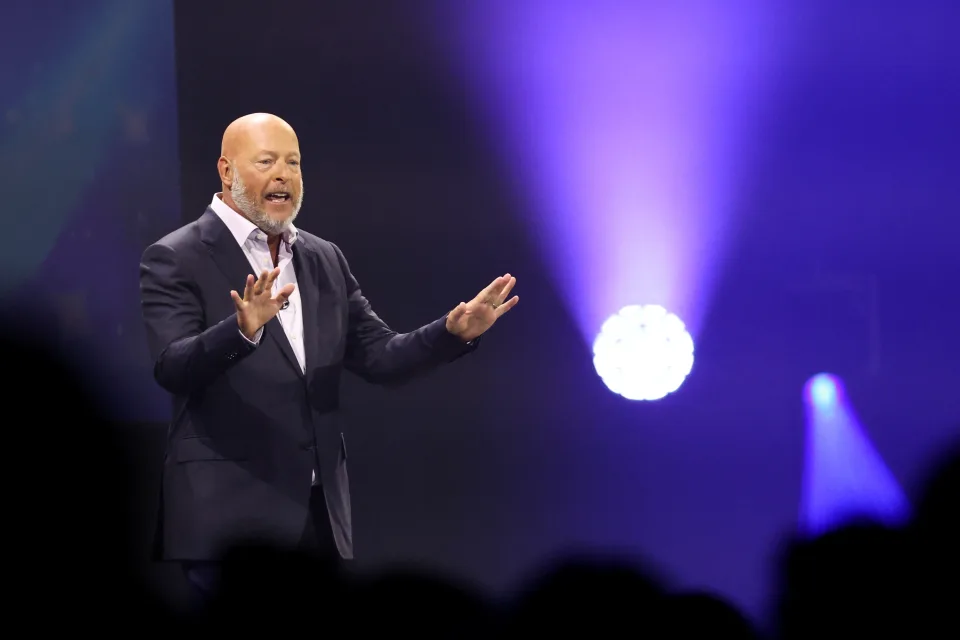Disney (DIS) stock plummeted on Wednesday after the media giant reported fourth-quarter earnings results that missed expectations across the board, with the exception of subscriber net additions.
“A big part of the miss was really on the parks side,” Geetha Ranganathan, senior media analyst at Bloomberg Intelligence, told Yahoo Finance Live (video above), citing the parks’ consistent performance up until this quarter.
“We were seeing them report some really, really stupendous numbers in terms of park profitability,” Ranganathan added. “So I think investors might have kind of thought that they can extend that. And there’s been some really good steps taken by management, whether it’s price increases, whether it’s more operational efficiencies. But I guess the costs finally caught up.”
Disney stock fell more than 12% as of afternoon trading on Wednesday. Disney stock hasn’t declined by more than 10% in reaction to earnings in at least 20 years.
Disney’s theme parks, which bounced back quickly from COVID-19 amid increased attractions, price hikes, and updated technologies like the Genie+ app, missed expectations in the quarter as recession fears pressured consumer demand.
Revenue from the company’s parks, experiences, and consumer products division came in at $7.43 billion (vs. estimates of $7.59 billion), with operating income hitting $1.51 billion (vs. estimates of $1.9 billion). Shanghai’s Disney Resort remains closed amid strict COVID-19 protocols in China, and the company revealed it has “no visibility on the reopening date” for the Shanghai location.
Despite the miss, Disney CFO Christine McCarthy said the media giant anticipates a “strong” holiday season at the parks and in the first quarter of 2023.
Disney’s DTC subscriber losses accelerate
McCarthy also said she expects Disney+ losses to peak this year, with management guiding that streaming losses will shrink by about $200 million in the first quarter of 2023.
Disney+, Hulu, and ESPN+ lost a combined $1.5 billion in the fourth quarter after losing $1.1 billion in the third quarter.
“We expect our DTC operating losses to narrow going forward and that Disney+ will still achieve profitability in fiscal 2024, assuming we do not see a meaningful shift in the economic climate,” Disney CEO Bob Chapek said in the earnings release.
“By realigning our costs and realizing the benefits of price increases and our Disney+ ad-supported tier coming December 8,” Chapek continued, “we believe we will be on the path to achieve a profitable streaming business that will drive continued growth and generate shareholder value long into the future.”
Disney+ saw net subscriber additions rise to 12 million in the fourth quarter, beating expectations of just over 9 million. The beat came after the company reported a surge of subscribers in the third quarter (14.4 million) following new market launches and a robust slate of content.
The company warned that it expects core Disney+ subscriber growth as well as Indian service Hotstar subscriber numbers to be lower in the first quarter. Content spend is expected to be in the low $30 billion range for full-year 2023.
“The narrative here is shifting away from just subscribers to profitability,” Ranganathan said, adding that the cost of content will likely remain elevated in the years to come.
“It’s really about getting efficiency in that spend,” the analyst added. “It’s about getting more operating leverage in your model as you kind of scale up on subscribers. And that’s what they’re hoping to do… get more ROI with every content dollar spent.”
Despite recent price hikes, average revenue per user for Disney+ dropped to $3.91 (vs. estimates of $4.29) amid an adverse foreign exchange impact and a larger subscriber mix.
The company will roll out its $7.99 ad-supported tier in December, one month after the much-anticipated debut of Netflix’s ad option. Despite the overall slowdown in ad spending, analysts remain bullish on the profitability prospects of ad-supported plans, especially for streaming companies.
“I think [the ad tier] moves the needle pretty substantially,” Ranganathan maintained. “It’s absolutely very, very critical, and they’ve done it at the right time.”

